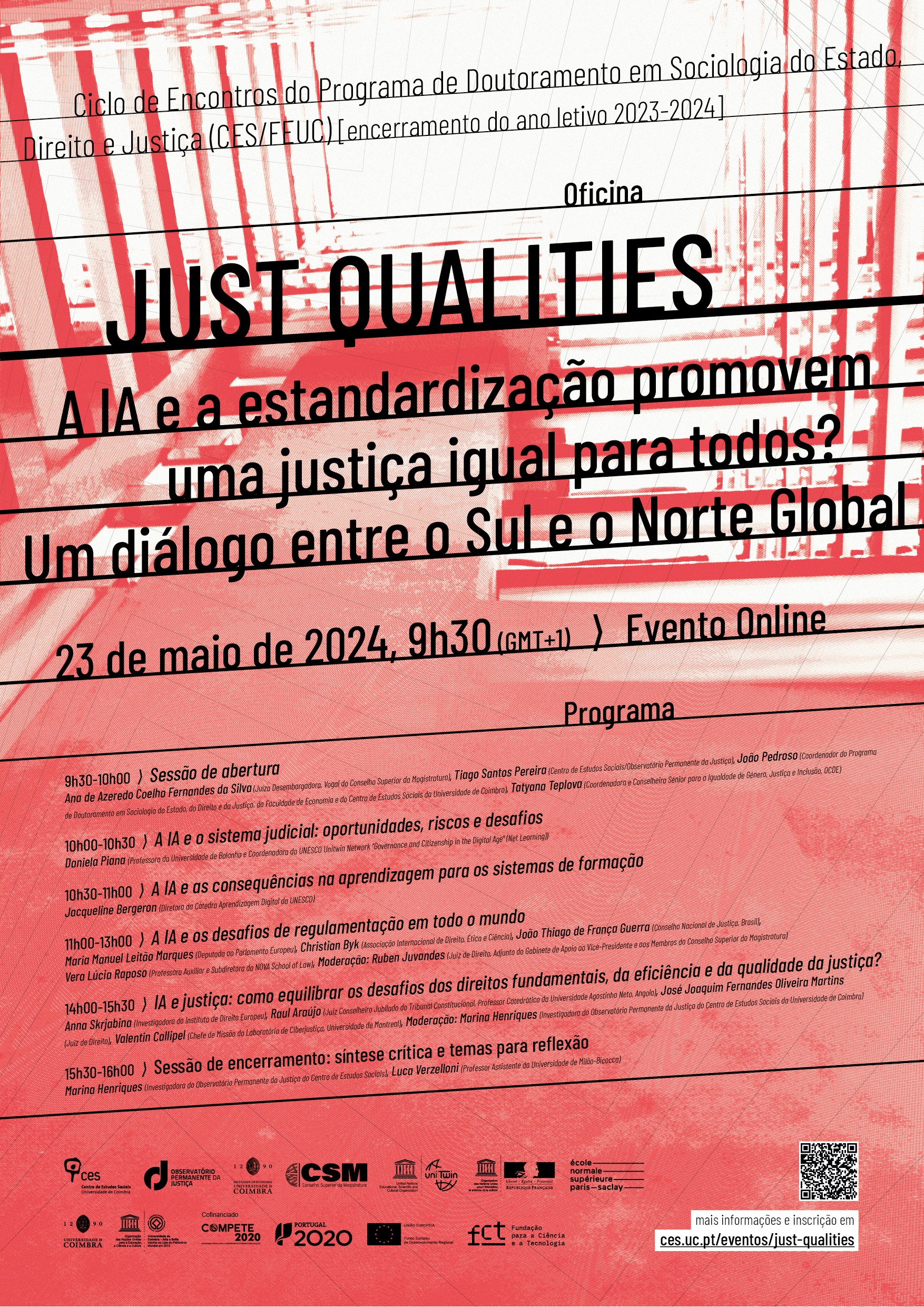Workshop
JUST QUALITIES - Do AI and standardization support an equal justice for all? A two-way dialogue between the Global South and North
May 23, 2024, 9h30 (GMT +1)
Online
The first twenty years of the twenty-first century have undoubtedly qualified for the exponential development of data science, for the transfer into digital format of content and forms of document processing, for the growing emphasis placed on the expectations, promises, and opportunities that the combination of digital and computational intelligence give rise to about the decision, to the organization, to the provision of services.
The repercussions on the protection of human rights, as well as on the forms of control and participation that institutional actors with values and competencies can ensure within the processes, are undoubtedly not only an open question but of primary rank in the millennium agenda that is opening. In the last five years, the field of law and justice has been crossed by a particularly widespread phenomenon of still largely unexplored scope deriving from the combination of two factors: on the one hand, the availability of social, economic, commercial statistical data and legal and judicial documents in digital format; on the other hand, the usability of applied mathematics and information science techniques, combined with the development of machines with exponentially growing computing capacity.
Beyond the clear evidence that everyone can see in an almost ostensible way about the impact that digital technology has on everyday economic and social life, in the context of the jurisdiction the recent evolutions that are included, sometimes too hastily and synthetically, under the category of artificial intelligence require a conscious and dialectical presence of the legal professions as bearers of constitutional values and as representatives on the territory of a vital function of liberal democracies, namely that of acting as an immediate point of interaction between the demand for legal services, the expression of legal problems and the search for an answer that finds its anchor in guarantees.
Legal and judicial professions expect major transformations imping upon the autonomy versus automation balance, the capacity to combine and integrate skills and methodologies in the daily working routines, and the competencies requested to contribute to the design-use-assessing life cycle of new tools and AI-driven devices applied within the jurisdictions.
The workshop will provide fresh lymph to a vibrant and worldwide-running debate with national experiences and innovative approaches from different countries and regions of the world, both in Global South and North.
The registration is free, but mandatory
[simultaneous translation]
Organized by:
Permanent Justice Observatory of the Centre for Social Studies of the University of Coimbra
PhD Programme in Sociology of the State, Law and Justice of the Faculty of Economics and the Centre for Social Studies of the University of Coimbra
UNESCO Unitwin Network "Governance and Citizenship in the Digital Age" (Net Learning)
High Council for the Judiciary
Permanent Observatory of Justice of the Centre for Social Studies, University of Coimbra
opj@ces.uc.pt | (+351) 239 855 570 / (+351) 914 140 187
https://opj.ces.uc.pt


